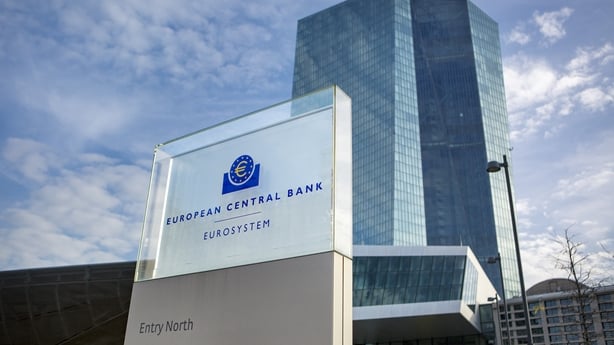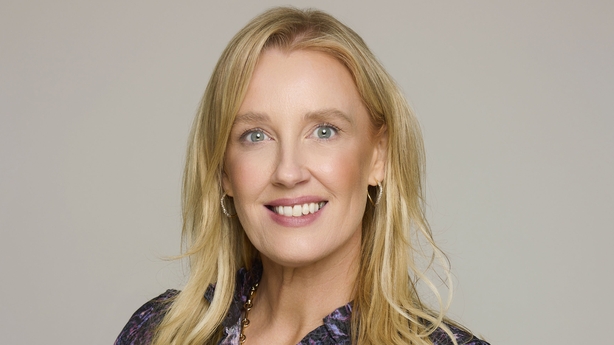The European Central Bank has cut interest rates and kept the door open to further policy easing as concerns over lacklustre economic growth supersede worries about persistent inflation.
It was the fifth ECB reduction since June and markets expect two or three more this year, driven by arguments that the biggest inflation surge in generations is nearly defeated and the flagging economy needs relief.
The decision means the ECB will cut its main rate from 3% to 2.75%.
It will immediately impact tracker mortgage customers who will see repayments fall by €13 per month for every €100,000 borrowed.
It will also create downward pressure on variable and fixed rate mortgages, according to brokers.
The ECB reaffirmed disinflation was "well on track" and welcomed slower growth in wages, which should help bring down inflation in the domestically focussed part of the economy.
"Wage growth is moderating as expected, and profits are partially buffering the impact on inflation," it said in a statement accompanying the decision.
With the euro zone economy stagnating in the last quarter due to an industrial recession and weak consumption, the ECB is seen sticking to its easing path even after the US Federal Reserve kept rates unchanged and hinted at a lengthy pause.
ECB policymakers are likely to have breathed a sigh of relief at their meeting after US President Donald Trump's new administration did not impose blanket trade tariffs as feared, although the threats he made have cast a shadow on the outlook.
We need your consent to load this rte-player contentWe use rte-player to manage extra content that can set cookies on your device and collect data about your activity. Please review their details and accept them to load the content.Manage Preferences
"We are confident that inflation will reach our target in the course of (2025) - sustainably so," ECB President Christine Lagarde told today's press conference.
She said the interest rate decision, which was expected and left the euro and bonds unchanged, was backed unanimously by policymakers.
With US President Donald Trump continuing to wield the threat of tariffs, she acknowledged that greater trade frictions could both upset the inflation outlook and weigh on the 20-country euro zone's already lacklustre economy.
"The risks to economic growth remain tilted to the downside. Greater friction in global trade could weigh on euro area growth by dampening exports and weakening the global economy," Lagarde said.
The economies of Germany and France both contracted in the final quarter of 2024 and Italy stagnated, leaving Spain as the only country among the euro zone's big four with a positive growth rate.
"I think the ECB is quite comfortable with the market pricing and financial conditions as priced by markets, in the grand scheme," Danske Bank economist Piet Haines Christiansen said before the decision.
"The doves may have a preference for slightly easier conditions though, but I don't think it’s a battle that they want to pick now, or actually be able to win," Christiansen added.

Inflation, which rose to 2.4% in December, could still take a few months to ease back to the ECB's 2% goal but there is little to challenge the narrative that all is on track.
Wage growth is easing, the labour market is softening, oil prices have come off early-year highs and the dollar's relentless firming seems to have stopped for now.
A few voices are still likely to argue that pressure on services costs remains too high for comfort but that is more an argument for gradualism than for a pause.
Read more:
Why the banks are pushing fixed rate mortgages
But with a debate already starting on where the ECB's rate cuts should end, consensus may be more difficult to maintain with each future cut.
Trump's policies could make the environment more volatile. His threatened trade tariffs could weigh on growth and any retaliatory measures by the European Union would risk pushing up inflation.
Trump last week demanded that the Fed cut interest rates but the bank resisted on Wednesday, arguing that inflation was still elevated and it was not in a hurry to cut borrowing costs, a signal taken by markets to suggest a longer pause may be ahead.
Any escalation of the war of words between them might rattle financial markets.
At 2.75%, the ECB's deposit rate is approaching the 1.75% to 2.50% range considered "neutral", neither fuelling nor dampening economic activity. But any Trump-induced volatility could intensify calls for the ECB to go below this rate and start stimulating growth.
"Markets are pricing a terminal rate of around 2%, which remains broadly consistent with our estimates for a neutral policy rate for the euro area, Konstantin Veit at PIMCO said.
"Nevertheless, we see additional downside risks to euro area growth post US election and potential for lower terminal rates."
A trade war would shake already weak confidence.
Consumers are saving up cash, industry is shrinking, governments have modest buffers to spend and exports - long the driving force behind growth - are barely expanding.
But inflation is still above the ECB's target and poor productivity growth along with labour shortages could keep up price pressures, likely limiting just how far the bank can go.
Foreshadowing the upcoming debate on pausing, board member Isabel Schnabel, an outspoken policy hawk, said the ECB was getting closer to the point where it must debate how much more it can cut.
ECB rate cuts now significant for borrowers
Brokers Ireland said the combined reductions since July 2022 are now significant for borrowers.
It said this fifth 0.25% drop, would mean a typical tracker mortgage holder on 0.5% above the ECB rate with an outstanding mortgage of €180,000 will see a total reduction of €145 per month on repayments arising from the reductions, including the special one-off reduction of 0.35% in September last.
Rachel McGovern, Deputy Chief Executive at Brokers Ireland, said today's news will come as a welcome relief.
"The unexpected and rapid nature of ten hikes in just over a year coincided with other cost of living increases and was financially stressful for many, especially those paying interest only and still facing having to repay the full face value of their loans.
"When you're on a tight budget every increase adds pressure, not just financially but emotionally too," she said.
Ms McGovern said beyond tracker mortgage holders, those on variable rates and those coming off fixed rates are dependent upon what their lenders will do.
About eight in every ten new mortgages taken out in recent years were for fixed terms, short fixed terms, typically three years. About 80,000 of these are exiting those rates this year.
"With falling ECB rates, their options are now looking increasingly better," Ms McGovern said.
"And greater lender competition is helping too," she said, adding that consumers should seek professional advice on the best options to suit their individual circumstances.
She also said Irish lenders have the capacity to offer better long-term fixed interest rates, which were only relatively new in the market when they were pulled as the ECB began raising rates from mid-2022.
Martina Hennessy, CEO of Doddl.ie, said that the ECB's main refinancing rate stood at 4.5% 12 months ago, but with today’s cut, it now sits at 2.9%.

She said that tracker mortgage holders with a €250,000 balance over 15 years have seen their repayments drop by €207 a month since peak rates.
"For those who do not have a tracker rate it is important to be aware that ECB rate cuts may not lead to corresponding cuts by the Irish lenders who price off Euribor rates and not ECB rates," she noted.
"Mortgage rates in Ireland have been falling since May 2024, some by over 1.5%, as banks have already priced in forward rate expectations in recent months, meaning competitive pressures rather than funding costs are now more likely to drive further reductions," she added.
Ms Hennessy said that lenders may still adjust individual rates to remain competitive in certain segments.
"Markets anticipate further reductions, with another 1% cut priced in for the year. With four more ECB policy meetings in the next six months, many analysts predict the refinancing rate will be closer to 2% by mid-year," she said.
"Analysts expect further cuts in 2025, but the ECB will be closely monitoring the potential impact of upcoming US trade tariffs on the European economy," she added.

